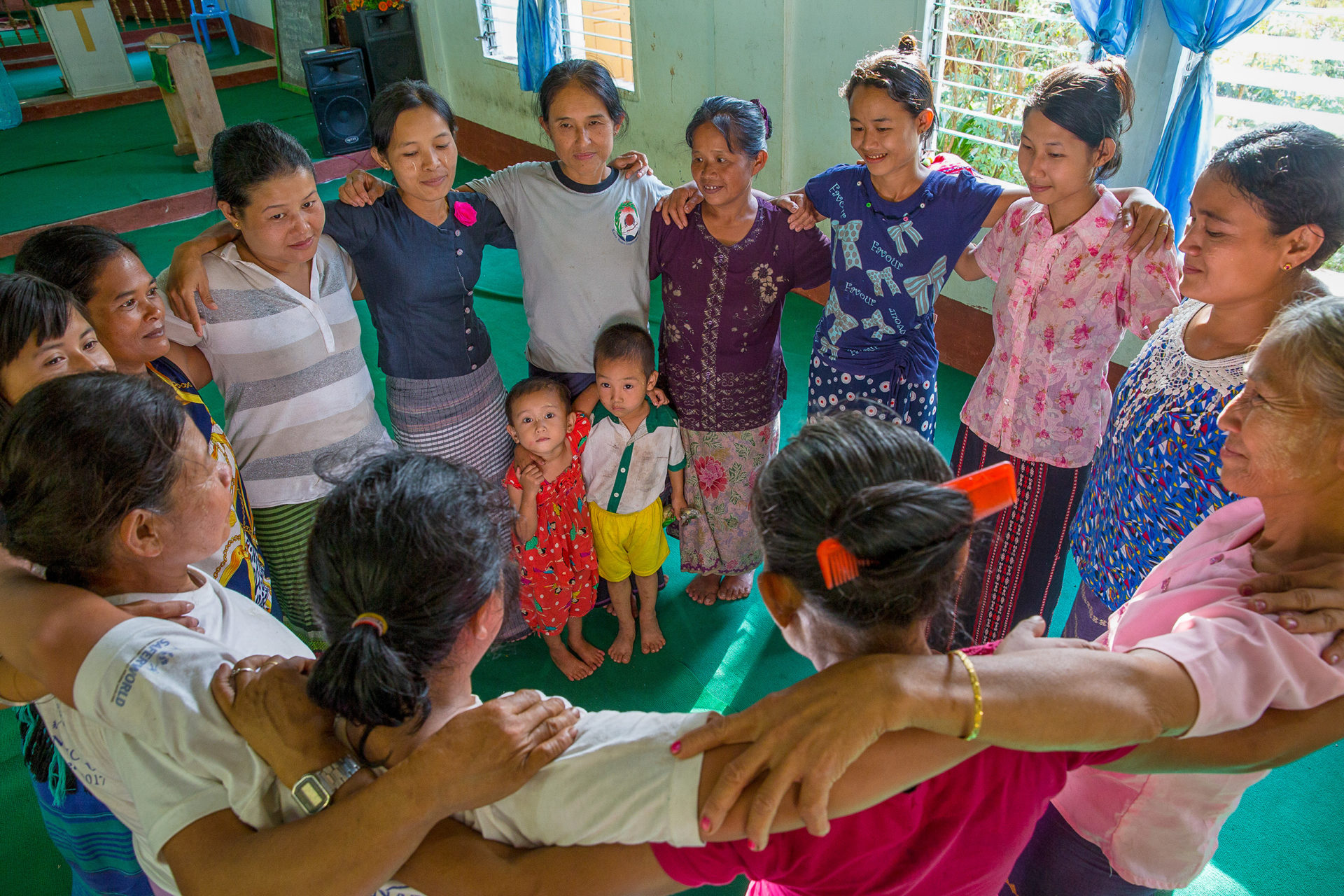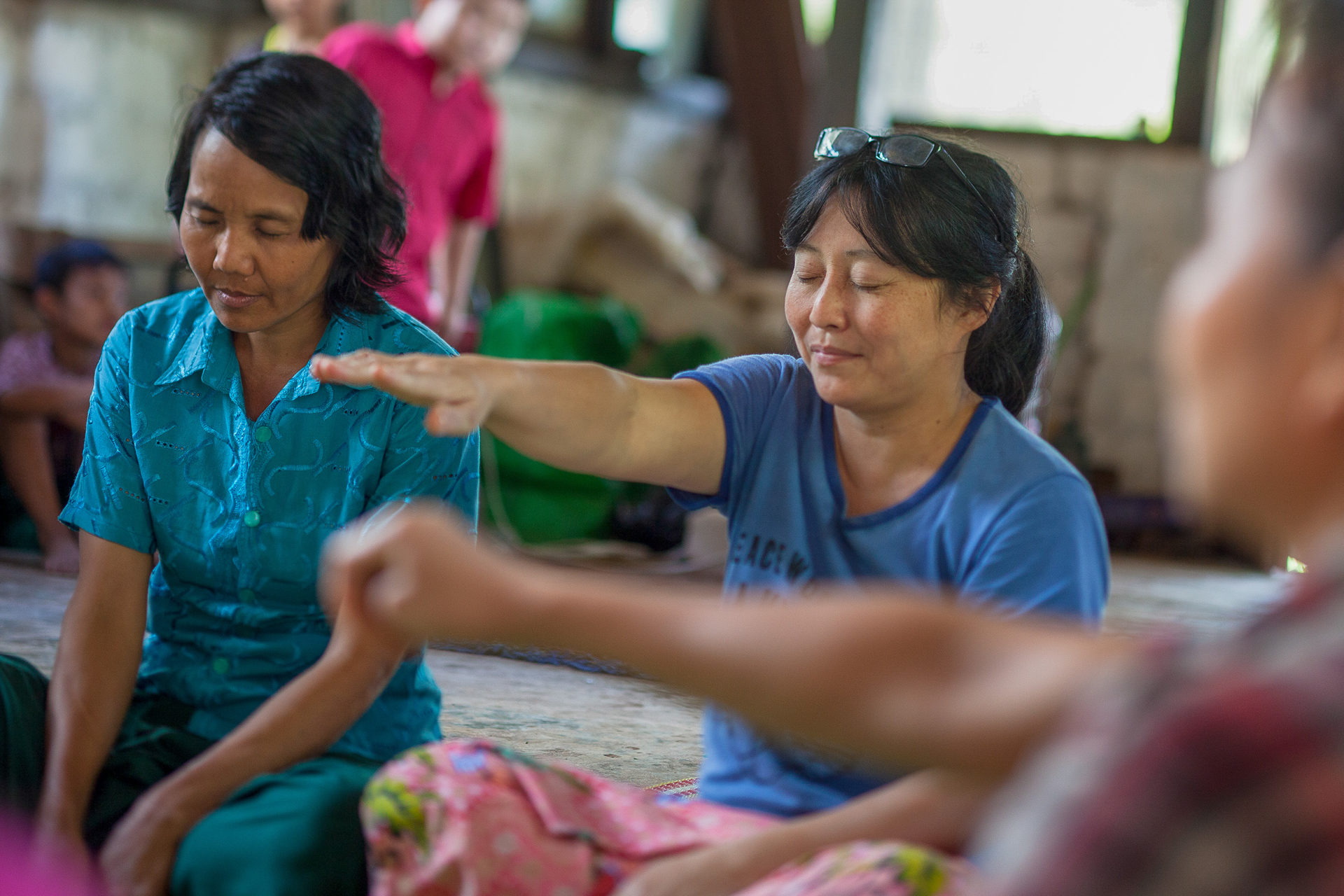Sport and play for women traumatised by war and violence in Myanmar? What’s the point? In occasion of the 16 days against gender violence the participants of “Moving Beyond Trauma” (MBT) describe how trauma affects their daily life and how sport and play help to deal with it.
Naw Gloe is a trained MBT facilitator in her village. She works with MBT staff on every life skills session that is offered. “I wanted to become a facilitator as soon as I was told about the project. I knew that I could benefit, but I especially wanted to help the women I know reduce their stress. I was told it was a project dealing with trauma, and a lot of people suffer from this. I knew the word and already knew some of the symptoms – I see them all around. They are unhappy, stressed and unwell. I see it. I was interviewed and given the opportunity to do the training.”
Relaxation through soccer
Naw Gloe enjoys the activities and the soccer that is played. She views herself as a hot tempered person, but she feels a sense of relaxation and calm after she plays soccer or sitting volleyball. She feels that the life skills sessions have given her some tools to understand herself, her strengths and her weaknesses. Her favorite life skills session has been assessing what she is strong at. She has carried this into her personal life, thinking about how she can use these strengths. This includes standing up for herself when she has problems in the family.
Reflecting on strengths
As a facilitator, Naw Gloe says: “I have helped women think about what makes them strong. This isn’t something they think about often. They don’t consider what they are good at, how they can help others. They think about the urgency of everyday things and forget about themselves. I can help them bring it together. Their lives at home with their husbands … this is not always easy. They need to know that they have choices and that they can bring something to the family.”
Naw Gloe is able to observe changes in the participants. “Especially the anger, they are less angry. They can handle their depression. We talk about these things, we teach them how to deal with it. This means recognizing it, talking about it, trying to control it. I helped other women think about this idea of facing things and discussing. This isn’t easy in a place where you are not encouraged and don’t want to talk about bad things.”
Breaking a taboo and sharing emotions
The facilitators previously shared with SAD and KWEG staff that sharing emotions, particularly difficult ones, was not something that is encouraged in the families and communities. Naw Gloe emphasizes that the life skills lessons are a challenge for the participants. They are doing things that they are not used to, and the discussions can be difficult. Participants talk, but they might occasionally argue or the facilitators must guide them slowly through the discussion to clarify things. However, she sees a big change in the participation. While some women had a hard time contributing, now all of the participants speak during the discussion and will even share their feelings. She feels this is an improvement that will help them outside of the sessions as well.


